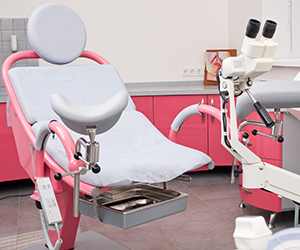Latest News Archive
Please select Category, Year, and then Month to display items
12 January 2024
|
Story Nonsindiswe Qwabe
|
Photo Sonia Small
 Since joining the UFS in 2008, Dr Grey Magaiza has worked extensively on approaches that can foster the socio-economic transformation of societies.
Since joining the UFS in 2008, Dr Grey Magaiza has worked extensively on approaches that can foster the socio-economic transformation of societies.
“The future should be one where communities can decide on their development agenda and futures. That’s the most important for me.” Dr Grey Magaiza, Deputy Director of the Centre for Gender and Africa Studies (CGAS) and Head of the Community Development programme on the Qwaqwa Campus, is passionate about capacitating communities to be agents of change and advancement. His vision for the future emphasises the empowerment of communities to take charge of their development by actively participating in decision making and the implementation of development projects that can improve their lives.
Since joining the UFS in 2008, Dr Magaiza has worked extensively on approaches that can foster the socio-economic transformation of societies. Over the years, he has crafted his research speciality into one that he is most proud of – being an interdisciplinary scientist immersed in the development of communities.
“I’m in a fortunate position of researching what I like. I say ‘fortunate’, because I’ve taken the time to understand what I’m passionate about, which is the overall field of rural livelihoods and livelihood futures – in short, community development. My research starts from an engaged university, understanding the elements that a university must use to enhance transformation and relevance to its immediate community in terms of development.”
One of the ways he has done this is by looking at social entrepreneurship as a development approach for young people in a rural setting. Through workshops with non-profit and civic organisations in Qwaqwa, Dr Magaiza has been helping these organisations to map out their needs and actively meet them through the involvement and support of external role players.
“We understand that communities are part of the national development agenda, but even that national agenda respects community knowledge and intentions and allows communities to shape their identity. A critical enabler of this is community organising. You bring back the capacity in communities to have dialogues on issues affecting them as spaces for engagement, knowledge exchange, and for people to just talk about their way forward.”
By enabling communities to define their development agenda, they can address their specific needs, challenges, and aspirations, he said. “When I look at livelihood futures, it’s quite an exciting aspect of my work – it’s like looking into a fortune tellers’ globe, because you’re not deciding for communities what they should do, but the communities themselves take those decisions.”
Care centre goes high-tech to help sexual abuse victims
2016-11-25

The colposcope, donated by the Discovery Fund,
will be used during gynaecological examinations
to detect any irregularities.
Photo: Supplied
Rape is one of South Africa’s most pressing social problems. Rape levels in the country are often discussed and reported on, but it does not deter perpetrators from this behaviour. According to Africa Check, of the more than 42 000 rape cases reported in 2015, 15 790 were child rape cases.
In an effort to assist victims of sexual assault and rape, the University of the Free State (UFS) Department of Family Medicine adopted the Tshepong Thuthuzela Care Centre, under the leadership of UFS lecturer Dr Mariaan Kotze.
The Discovery Fund donated a colposcope to Tshepong Thuthuzela Care Centre, an instrument that works with the help of a bright light and which is used to examine victims of abuse. It has also become a standard of good practice in the assessment of child abuse worldwide. According to Dr Kotze, the new instrument will also be used for training health practitioners by rendering clinical forensic services to abuse victims.
Managing complex issues
The care centre works with between 80 and 120 victims of rape each month, a third of whom are children under 14 years of age. According to Dr Kotze, the management of child sexual abuse victims is more complex than with adults; as there is a higher chance of missing or over-diagnosing abnormalities. Also, she says, the examination process is often observed by a group of healthcare practitioners, an experience which is often intrusive and intimidating for the child. With the colposcope, the timeframe of the examination is shortened, and can be captured and viewed in real time, without the victim being present.
Best care for victims
The colposcope is a magnifier and light source used during gynaecological examinations. It is instrumental in providing the best care to victims of sexual abuse, and helps diagnose and assist in the treatment of cases of abuse. Its ability to capture and review images at the time of examination allows for retrospective research, and improves the ability of expert witnesses in court cases.